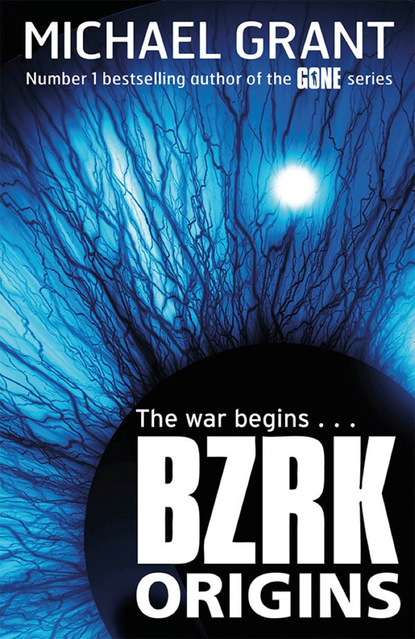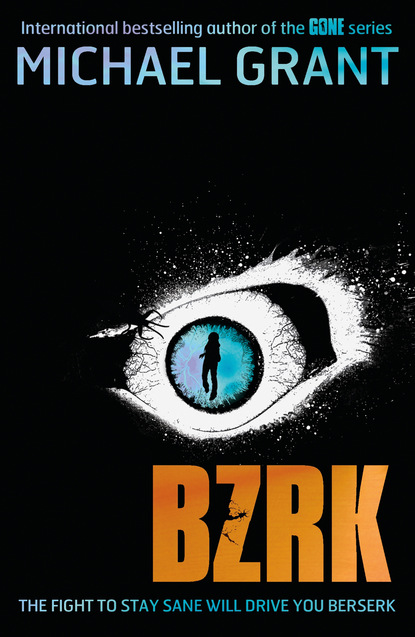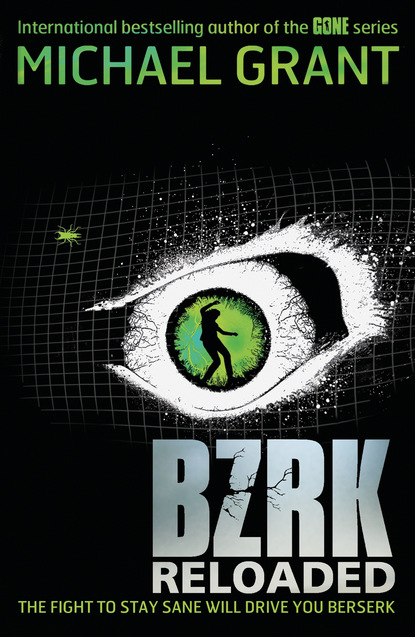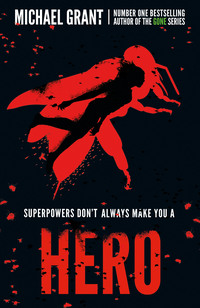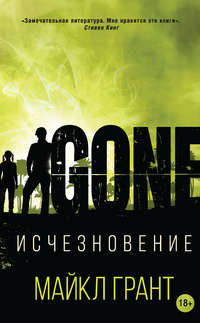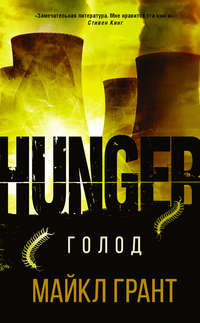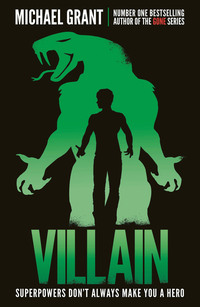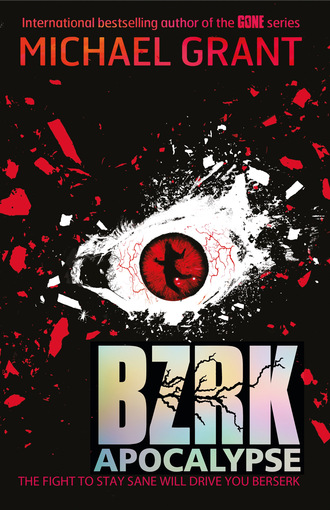
Полная версия
Bzrk Apocalypse
There were trees and flowers, streams full of fish and waterfowl, pink gravel pathways leading to benches and seating areas where the white-collar employees could take their lunches al fresco .
At the top of the oval, connecting the two crescents, was a stumpy tower topped by a domed observatory. There was an impressive optical telescope there which profited from the profound darkness of the surrounding countryside.
No one was using the telescope at the moment because it was pouring rain. It often poured rain here. And when it poured it was unlike anything Charles Armstrong had ever known in New York. It came down not in drops but in sheets. The heavens did not sprinkle on Sarawak, they emptied buckets and bathtubs and swimming pools.
Charles watched a lizard climbing up the glass side of the dome, pushing against the stream of water. Sarawak had lizards. It had lizards and snakes and birds in abundance.
“I would have thought the rain would wash it off,” Charles said.
His brother, Benjamin, was less interested by the lizard or the rain, but of course could see both since it was impossible for the twins not to face in the same direction. Their individual eyes could roam this way or that, focus independently under the direction of their separate brains, but they did not have separate heads, rather two heads melded together.
This gave them two mouths, one nose, and three eyes. The middle eye was a bit smaller than the other two and often had an unfocused, glazed quality. It could see, but its focus was not consciously directed by either Charles or Benjamin. Rather it often seemed to have a mind of its own and would focus where it willed, suddenly granting depth perception to one or the other twin, but never both at once.
They were large, the twins were, tall but even more broad, with shoulders capable of carrying the unusual weight of their doubled head. Two arms, neither muscular, two fully developed legs and a third, stunted leg.
At the moment they were sitting in a modified electric wheelchair. It was far more capable than the usual motorized wheelchairs and had been given an almost dashing, exotic look, with burgundy velvet trim, two side panels that likely concealed weapons, and wheels that looked more racetrack than hospital. But it remained, in the end, a wheelchair.
The observatory was their haunt for now. There was a bedroom down a ramp, and a specially outfitted bathroom. But the bedroom had only conventional windows. All their lives had been spent indoors, and they craved the openness of the observatory, even when all they could see was water sheeting down the glass and a lizard struggling against that tide.
“Looking at lizards,” Benjamin said, disgusted.
They had both been depressed since the sinking of the Doll Ship. The Doll Ship had been their happy place, the place they could think about when life became too gloomy or the pressure too intense. Now it was gone. All those poor people, the people who worshipped them, who saw beauty in their deformity, all of them gone.
“Fish food,” Charles said, knowing where his brother’s thoughts had wandered. “And we still don’t know how it happened.”
“A Swedish intelligence officer and a British admiral.”
“But how?”
“Many questions, brother.”
They turned the wheelchair to face the large monitor that hung above a touch-screen desktop. The monitor was divided into twenty-four smaller frames. Three were tuned to various news outlets. The rest were clearly surveillance cameras. An empty room with desks. A break room with one woman making coffee. A lab with two people in white coats moving to some unheard music while they tapped on keyboards. A puzzling view of what might be a warehouse.
One by one, the video tiles flipped to be replaced by different views. Every corner of the Armstrong empire.
They could see everything, but what could they control? They weren’t even sure they could return to New York. London, too, might be out of bounds.
“We are hiding like rats from a cat,” Benjamin said.
“We’re foxes at the very least,” Charles said, trying to make fox hunts usually ended with dogs tearing at the cornered animal. “System: locate Burnofsky,”
A larger picture appeared, in the center of the monitor. The object of their search had his back to them. He was hunched over a terminal.
“There’s our Karl,” Charles said, steel in his voice.
“Ours?”
Charles sighed. “Either he hit bottom on some grand, final bender and decided to turn his life around. Or—”
“Or BZRK wired him,” Benjamin said.
“Ling!” Charles yelled. “It’s dinnertime, and I find I would enjoy a drink.”
They shared a digestive tract, despite having two mouths. It took consent from both for either to drink alcohol. Or to eat, though they tried to be tolerant on that. Benjamin liked to snack on a bowl of Chex Mix sometimes, and Charles preferred fresh fruit. Apricots. He loved a perfect apricot, though a really good one was hard to find.
“A drink, yes,” Benjamin said. “And maybe more than one apiece.”
Ling appeared, moving with a gliding speed that belied her advanced years.
“Ah, our friend and hero, Ling. I shall have a glass of wine,” Charles told her. “A Cabernet, I think.”
“I’ll have a Cognac,” Benjamin said. “You know what I like.”
They sat glumly watching the video frames opening and closing around Burnofsky as the system cycled randomly through the hundreds of surveillance cameras. Here was a woman making copies. There a man staring blankly into space. A couple putting on coats ready to go home. Jet-lag-dulled shoppers at the Twins’ O’Hare Airport store. Two men debating something, both pointing at tablets.
At the bottom of each window was a small tag giving the location. Athens. Newport News. Tierra del Fuego. Johnson City. AFGC—the Armstrong Fancy Gifts Corporation—had locations all over the world, even without counting the shops in virtually every airport.
“We have not lost, brother,” Charles said softly with what he hoped was an undertone of iron resolve.
“Yet we’re in hiding.”
“We have not lost. We are not beaten . We have the Hounds. We can rebuild the twitcher corps. We can start again. And we have Floor 34.”
“Floor 34’s a losing tactic,” Benjamin snorted. “Defensive. It takes down BZRK. But it does not give us back the president we lost, or the premier we lost, goddammit! God damn it!” He slammed his fist down on the desk, making Charles’s glass of wine jump. “Or Bug Man. Or the Doll Ship.” He moaned. “What we have lost! What we have lost !” He drained the snifter of Cognac in a single long swallow.
“When Floor 34 is ready, we take down BZRK and all they have within weeks. It spreads, brother; it will find them in all their hiding places. And when it has done its work, we will be without enemies, we—”
“Without enemies? You think BZRK is our only enemy? Don’t you know the Chinese are dissecting every body they fish out of Hong Kong harbor? They know. They know ! And if the Americans and Europeans don’t know yet, they will soon.”
“What is it you want, Benjamin? To unleash the gray goo?”
The gray goo, a ridiculous name for a deadly threat: self-replicating nanobots. Nanobots building more nanobots with whatever material they found at hand. Going from thousands to millions and billions and trillions in mere days; consuming every last atom of carbon and a good many other elements as well. Everything that lived or had lived on the surface of planet Earth. Everything that made life possible.
Nanobots were the mechanical answer to biots. Just as small, but without the eerie and inexplicable link that connected a biot to its maker. Nanobots had to be run through a game controller. They were somewhat less capable, but they had a huge advantage: it was nothing to lose a nanobot. But to lose a biot? Well, that way madness lay.
Benjamin gestured at the screen. He happened to be focused on a family at one of the AFGC shops, this one at Schiphol Airport in the Netherlands. A family. Man, woman, blond child, poring over souvenirs. “I hate them sometimes. I hate them enough to do it.”
Charles intuited which frame his brother was focusing on. “Yes, but imagine them as ours, brother. Imagine them united with us. Imagine them happy to look at us. Imagine what we can make them into with our nanotechnology and our friends from Nexus Humanus.”
“Nexus Humanus,” Benjamin snorted. It was a cult they had financed as a way to recruit twitchers to control nanobots, and other useful folk. But it had lost steam, like bargain-basement Scientology. “We had it, the world we seek. The Doll Ship.” A tear welled in Benjamin’s eye, swelled and went rushing down his cheek.
“Nonsense, brother, it was only a model of the world we seek.”
“A world united,” Benjamin said, bitterly wondering at his own naivety. Weeping, figuratively at least, for the benighted human race that was being deprived of the utopia he saw so clearly. “One vast interconnectedness, with us at the nexus.”
“It can still be. It can. But not if we unleash the SRNs. Not the gray goo, not that final act of Götterdämmerung. The lesser tack, though . . .” Charles was offering a sacrifice to the god of Benjamin’s rage. A step short of apocalypse.
“Massed pre-programmed attack,” Benjamin said, accenting the final word. Nanobots could be programmed to carry out simple commands autonomously. Large numbers of them, so long as the task was simple. Millions of them if necessary. They could be programmed to destroy all in their reach for a certain period of time and then turned off, a sort of localized, small-scale gray goo.
“If it’s true that the intelligence agencies either know or will soon, then we won’t be safe, even here. But if we disrupt . . . If we launch mass releases. Washington. London. Beijing. Give them something to keep them very busy. And at the same time use the Floor 34 weapon to take out BZRK . . .”
“There he goes. Burnofsky. He’s doing it again.” Benjamin had spotted it. He gave the voice command to expand the screen. Burnofsky’s image pushed all the others aside.
In the image—high-def, no grainy monochrome—Burnofsky had lit a cigarette. He took a few puffs. Sat, staring at nothing. Took another drag on the cigarette.
“Here it comes,” Benjamin said.
Burnofsky slid a desk drawer open. He drew out a framed photograph of a young girl.
“The daughter,” Charles said. “He’s never gotten over it.”
Burnofsky looked at the picture and puffed his cigarette so that now the smoke partially obscured the image, swirling up around the hidden camera. They could only see the side of the man’s face, but the smile was huge, ear to ear. The smile and a silent laugh.
“Volume up,” Charles ordered.
Burnofsky was making a chortling sound, a private, gleeful, somehow greedy sound. Like a miser counting his money.
“Bugs in your brain, baby,” he said, laughing happily. “Bugs in your brain.”
“System: zoom in on Burnofsky’s face,” Benjamin ordered. The camera zoomed. “He’s crying as he laughs. Crying and laughing. Here it comes.”
Burnofsky lifted his shirt up off his corpse-white concave belly. They had a poor angle on this, just barely able to see.
Burnofsky sucked hard on the cigarette, and holding the smoke in his lungs, stabbed the lit end of it against his belly.
They heard the sizzle.
He held it there; held it, held it, held it . . . and then, with a cry of pain that caused smoke to explode from his mouth, Burnofsky at last pulled the cigarette away.
“Karl, Karl, Karl,” Charles said.
“Exercising, eating well, no more drugs, far less alcohol.” Benjamin recited the relevant facts. “Seemingly less depressed. And this self-mutilation is the price, somehow. You know it’s BZRK, brother. You must know that. He’s wired. They’ve taken our genius from us.”
Charles sipped his wine. He had to take it slow if Benjamin was going to be swigging brandy. “I don’t know it. But, do I suspect it?”
He let the question hang.
“We must return home. Home to the Tulip.”
“Back to the Tulip?” Charles’s voice was troubled. “Even now that will be dangerous.”
“I’ve spent—we’ve spent—our lives skulking and hiding, brother. Is there not, finally, a time to stand up and be seen and counted?”
Charles didn’t argue. He knew it would be pointless. Benjamin would have his own Götterdämmerung . Charles felt sick inside. He did not want this to end in apocalypse. He had never wanted anything, really, but for all the world to be happy. And to accept him for what he was. And if only he could be allowed to wire the entire human race with his nanobot forces that beautiful vision would be realized. A world of peace. A world free from want and hate and fear and pain because every human being would be brother, sister, father, mother to every other human being. One vast interconnectedness.
“We hit back,” Benjamin was saying. Over and over. “We hit back!”
Charles closed his eye and heard the voice of his brother, so many years ago, so long ago, before they understood. Before they came to accept their isolation and loneliness. The voice of the child Benjamin was the voice of the grown man now.
Hit back, hit back, hit back.
On the screen Burnofsky was giggling and crying.
FOUR
Sadie and Noah were bundled into a Land Rover and driven straight, without packing, without ceremony, without time to breathe, to a privately owned airstrip and practically shoved aboard a Gulfstream.
The pilot filed a flight plan for the relatively short hop to Sambava airport on the main island of Madagascar. But that would be the expected route and if the enemy had gone to the trouble of blowing up a boat, would they hesitate at an airport assassination?
So the Gulfstream flew on, took on fuel in Kenya, and made the long haul to Madeira to prepare for the final leg to New York’s Teterboro.
At Madeira the security men let them off the plane. Plath and Keats took a taxi into the whitewashed city of Funchal and ate voraciously at a café that smelled of garlic, red wine and cedar, and served cod and prawns and good, doughy bread in a sky-blue stucco dining room. The Gulfstream had left in too great a hurry to take on food and despite their picnic lunch hours earlier, they were starving.
“So what do we do now?” Keats asked. He had the sense that this might be the last time they could speak freely. There was a single weary McLure security guy outside on the street, gun out of view but not out of reach, but no one was watching or listening in the restaurant and the clatter of cutlery on pottery and china would have obscured their words in any case.
“Back to New York,” she said with a shrug.
“And then?”
“Then we do whatever Lear tells us to do.” It sounded bitter. It was.
Keats tore at a piece of bread then used it to sop up some gravy. “That’s not proper, is it? Proper table manners, I mean.”
“Yeah, that’s what I care about,” Plath said. “Table manners.” She offered him a smile and put her hand on his.
“It doesn’t make sense, that’s the thing,” Keats said.
“Manners?”
“Blowing up the boat.”
One of Plath’s continuing joys in her relationship with Keats came from the fact that in just about every case where she wondered if he was understanding things, he was. He might look a bit like the naive dreamboat guy, but those too-blue eyes and sensuous mouth were deceptive. There was a sharp, observant brain there as well.
When am I going to stop underestimating you, Noah? She asked herself this silently, and in her mind he was firmly Noah still, not Keats. Keats was work. Noah was . . . Well, what? Love?
He loved her. Did she love him ?
Was it a class thing? The fact that she came from money and his family had never risen to middle class? Was she really that shallow? She wouldn’t have thought so, would have angrily denied it. But at the same time, coming into her inheritance had without doubt added just a bit of swagger to her worldview.
She was rich. Very rich. He was very much not. Was that why she still held something back from him? That would be shameful. Or was it simply that she had seen him in ways no young woman is meant to see a young man? She knew too much and had memories that were far too vivid and intrusive. She knew what his lips looked like in the micro-subjective.
She knew that down there, where distances were measured in microns, those full lips were crusted parchment. She knew that his fingertips looked like arid, plowed fields. She knew that his tongue was serried ranks of pink hoods, and that trapped between the rows were bright false-color bacteria.
She knew that living things crawled in his eyelashes, tiny things unless you were down in the meat and saw them m-sub. Then they didn’t look so small. M-sub fleas looked like spiky, punk versions of the armored oliphaunts from the Lord of the Rings movies, except that they could jump a thousand times their own height.
She knew, above all, that all the intelligence and charm and wit, all of his readiness to commit, all the love he was so ready to express, was nothing but minute electrical charges firing along neurons in the wet folds of his brain.
She had not just seen these things on an image captured from a scanning electron microscope. She had been there in her biots. She had seen them all with biot eyes that were as real to her as her own.
Even now she knew that Noah was seeing the same with her. One of his biots was in her brain right now. All three of hers—P1, P2, P3—were in the vial she kept on a chain around her neck for safekeeping, but she was still seeing through their eyes, seeing a long, rainbow-hued glass wall. Three distinct windows were open inside her visual field. And if they ever began to go dark . . . Then would come the madness she defied by taking the name Plath.
Down in the meat.
Once you had gone down in the meat, the images could not simply be set aside and ignored. And after memories came imagination, so that she would picture things she had not seen through biot eyes as they would look at m-sub.
She would see the micro detail of his lips and her own; she would see the rough furrows of his fingertips as they brushed her nipples; and she could imagine the billion tail-whipping sperm cells as he ejaculated.
It was all, at the very least, distracting. Though somehow it never seemed to distract him—
Keats waved his hand up and down in front of her face.
“Sorry,” Plath said and snapped back to reality. “I was considering. The boat. Yeah, it was both crude and ineffectual.”
“Armstrong wouldn’t come at us that way,” he said. “If they knew where we were they’d deploy nanobots. There have been servants in and out of the house, we had a doctor in when I got food poisoning; there were opportunities for infestation.”
“Or they could have targeted some of Stern’s people and bounced the nanobots to us from them. I mean, if you know where two members of BZRK are, you try to wire them, you don’t try to kill them.” She glanced over her shoulder upon saying the word BZRK, pronounced with vowels intact: “Berserk.”
Keats nodded, tore off another piece of bread, sopped up more gravy and popped it in his mouth. Plath could imagine the scene down at the m-sub. The teeth would be impossibly huge, scaly not smooth, massive mountainous gray boulders dropping from the sky and rising from below to crush and—
I have to stop this. I have to get control of my thoughts.
Too easy to let that consciousness of another universe take over her mind. Too easy to go from distraction to revulsion. She had to be able to be with another human being without always picturing that other, stranger reality.
“Maybe it was something totally different,” Noah suggested. “Maybe there was a fuel leak on the boat. Maybe we’re just overreacting.”
“Maybe,” Plath said. “But our time in the Garden of Eden had to end eventually. We had to go back. We’re supposed to be running things.”
Keats met her gaze and shook his head slowly. “No, not we. You, Sadie.” Then with a wry smile he corrected himself. “You, Plath .”
She could have said that they were partners. She could have said that obviously he was as important as she was.
But she had not told him about the message from Lear telling her to get back in the game. The message she had ignored for days.
She wondered if she should tell him now.
But instead she copied him and mopped up some gravy. She didn’t have time to worry about tending to Keats’s ego. Her mind was filling with the implications of the suspicion that they were being shepherded.
Driven.
Manipulated.
Anthony Elder, who had once used the name Bug Man, was shopping for onions at Tesco. Not just onions, there were other things on the list, too. But it was onions that somehow irritated him.
Nutella
Beans
Bread
Pasta (own brand, nothing fancy)
Mushrooms (fresh, button, 1/2 pound)
Cheerios
2 oranges
3 onions (the white kind)
Three onions. The white kind.
This was his life. Again. His mother was already on him about going back to school. To school!
“You don’t want to go on neglecting your education, Anthony. That’s most likely why you were let go.”
Let go.
Well, no, Mum, I wasn’t exactly let go. I ran for my life—flew for it, actually, all the way back to England—after my mistakes caused the American president to blow her brains out in front of the whole world. It wasn’t because I couldn’t conjugate French verbs or recall the date of the Battle of Hastings.
He didn’t say that to his mother, of course.
He walked down the cereals aisle searching for Cheerios, maneuvering around a woman who was pushing both a baby buggy and a shopping trolley. He found the cereal, puzzled for a moment over what size box he should be getting. His mother would chide him no matter what he chose.
Small, then. Easier to carry home. Less chance of catching some smart remarks from passing thugs.
He’d been on top of the world. Now he was self-conscious about being seen by others his age, struggling with plastic bags of pasta and Nutella and onions. The white kind.
A pretty girl coming toward him looked right through him like he was invisible.
He’d had the most beautiful girl in the world. Jessica. She’d been a slave to him. A slave. The memories made him ache inside. He would never get within conversational range of a girl like that again.
Top of the world, that’s where he’d been. But all that was gone now. All that gone and now he was invisible to women and girls. He was a moderately attractive black teenage boy with no obvious signs of wealth or future prospects. Why would they look at him?
He rounded a corner, walked glumly past aisles of this and that, entirely forgetting the pasta, ignoring the plastic-wrapped slabs of meat to one side, heading to onions.
He felt rather than saw that something had changed.
Instinct. Some sense that was not quite sight, sound, smell or touch. The certainty that he was being watched. Without turning to look he knew he was being followed. His speed was being matched.
He walked slower, stopped, pretended to admire the lamb; but the presence did not pass him by.
He moved suddenly toward the grocery department, walking too fast, and he felt his pursuer keep pace.
Well.




